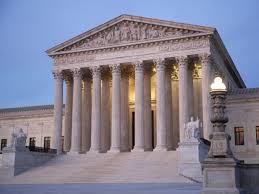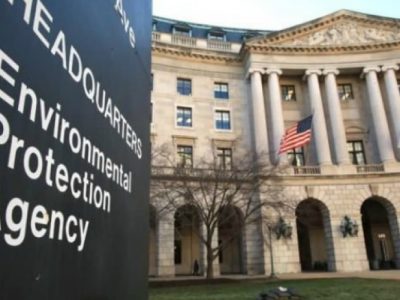Clean Air Act
Biden’s Proposed Power Plant Rule is a Solid First Step
The electric power sector remains 30 percent of the nation’s carbon dioxide emissions, and this rule can incentivize the push towards renewables.
On May 23, the Environmental Protection Agency (“EPA”) proposed emission limits and guidelines for carbon dioxide from fossil fuel-powered plants. To avoid the same fate as the Obama Administration’s Clean Power Plan, which was struck down by the conservative Supreme Court in West Virginia v. EPA last year, the new draft rule does not determine …
Continue reading “Biden’s Proposed Power Plant Rule is a Solid First Step”
CONTINUE READINGEPA and the Student Loan Decision
Will the major questions doctrine block EPA’s proposed rules?
Biden v. Nebraska, the student loan case, provided a new opportunity for the Court to apply the major question doctrine. Does this decision increase the threat that EPA’s proposed new regulations will be struck down under this doctrine? A careful reading of the majority opinion is at least somewhat reassuring. The Court painted a picture …
Continue reading “EPA and the Student Loan Decision”
CONTINUE READINGEPA’s Power Plant Rule is Not Bold. It’s What’s Required.
It’s important to remember the regulatory history—and the growing urgency—of limiting climate change-related carbon pollution from power plants.
Today’s the day for the long-awaited release of Environmental Protection Agency regulations to tackle planet-warming pollution by the nation’s power plants. (Read the announcement here and the full text here.) The EPA is proposing a new standard for fossil fuel-fired power plants to avoid 617 million metric tons of carbon dioxide through 2042. For weeks, …
Continue reading “EPA’s Power Plant Rule is Not Bold. It’s What’s Required.”
CONTINUE READINGThe Car Rule and the Major Questions Doctrine
Claims that the new rule violates the doctrine are groundless.
Ever since the Supreme Court decided West Virginia v. EPA, conservatives and industry interests have claimed that just about every new regulation violates the major question doctrine. When the Biden Administration ramped up fuel efficiency requirements through 2026, ideologues such as the Heartland Institute and states like Texas were quick to wheel out this attack. …
Continue reading “The Car Rule and the Major Questions Doctrine”
CONTINUE READINGU.S. Climate Law: A Broad & Rapidly Growing Field
There’s a lot of law relating to climate change. A lot!
In preparing to teach a course on climate law, I was really struck by how broad and rich the field has become. Back in the day, it was nearly all international law, but nowadays there’s a huge amount of U.S. domestic law. Most people, even those who work on the field, tend to focus on …
Continue reading “U.S. Climate Law: A Broad & Rapidly Growing Field”
CONTINUE READINGDo Climate Change Cases Belong in Federal Court? The Biden Administration Weighs In.
In a very narrowly argued brief, the Administration calls for returning the cases to state court.
The Biden Administration, at the Supreme Court’s invitation, has now filed a brief giving its views about current lawsuits against oil companies. The gist of the brief is that the cases belong in state court., and that the Court should let that happen rather than stepping into the litigation. The brief is right about that, …
CONTINUE READING“Major Questions” for Texas (and for the Environment)
Defending clean car regulations and tracking judicial decision-making
Last June, the Supreme Court formally unveiled the “major questions” doctrine in the landmark environmental case West Virginia v. EPA. In rejecting EPA’s plan to regulate greenhouse gas emissions from existing power plants under Section 111(d) of the Clean Air Act, the Court stated that “agency decisions of vast economic and political significance” (i.e., those …
Continue reading ““Major Questions” for Texas (and for the Environment)”
CONTINUE READINGCongressional Cancel Culture
Once again, the Congressional Review Act rears its ugly head.
The Congressional Review Act (CRA) provides a fast-track process for canceling regulations if they hit an ideological nerve or offend a powerful special interest. Congressional Republicans are busily trying use it to cancel environmental regulations. Earlier this month, the target was a regulation encouraging pension managers to consider the impact of climate risks on their …
Continue reading “Congressional Cancel Culture”
CONTINUE READING50 Years Ago: Environmental Law in 1973
Five decades back, the country was in the midst of unprecedented environmental ferment.
1973 was at the crest of the environmental surge that swept the United States half a century ago. In the previous three years, Congress had passed NEPA, the Clean Air Act, and the Clean Water Act. The first EPA Administrator took office in 1971. Continuing the legislative wave, 1973 saw the passage of the Endangered …
Continue reading “50 Years Ago: Environmental Law in 1973”
CONTINUE READINGKeep on Trucking
A new rule will clean up exhaust from new diesels, a major health threat.
Last week, EPA finalized its new rule imposing emission limits on new heavy trucks. The new regulation was clearly a massive undertaking. EPA’s formal announcement of the new rule is 1100 pages long. The accompanying summary of comments on the proposed rule and EPA’s responses is another 2000 pages. This is partly due to the …
Continue reading “Keep on Trucking”
CONTINUE READING










